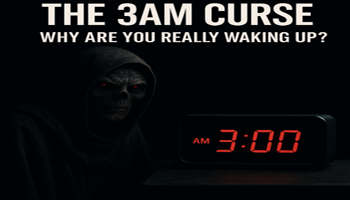You jolt awake — again — at 3:12 AM. No sound. No nightmare. Just a wired brain in a restless body. You’re wide awake… but why?
Most people blame stress, hormones, or maybe scrolling too late. But what if the real saboteur is far more silent — and it’s been lurking on your plate?
🧂 The Silent Saboteur: Salt’s Impact on Sleep Hormones
This isn’t another tired warning about salt and blood pressure. This is about how sodium intake directly alters your sleep hormones, disrupts your neurochemical balance, and leads to what many experience as the dreaded 3AM wakeup — a phenomenon far more biological than behavioral.
🧠 Hormonal Hijacking: The Science
Let’s begin with the endocrine system, your body’s hormonal command center. A proper circadian rhythm requires a coordinated dance between melatonin (the sleep hormone) and cortisol (the alertness hormone).
- In healthy individuals, melatonin levels rise in the evening, signaling your body to wind down.
- Cortisol levels, ideally, dip to their lowest point during deep sleep, preparing you for overnight repair and memory consolidation.
But when you consume a high-sodium meal at dinner — especially common in processed or restaurant foods — you set off a series of biochemical disruptions:
- Transient Hypertension: Sodium pulls water into your bloodstream, elevating blood pressure. This activates your sympathetic nervous system (fight-or-flight), triggering cortisol and adrenaline spikes.
- Dehydration & Electrolyte Imbalance: Elevated sodium decreases intracellular hydration and competes with other minerals like magnesium and potassium, which are critical for calming the nervous system and relaxing muscles.
- Suppressed Melatonin: According to research published in Chronobiology International, sodium can interfere with pineal gland function, which suppresses melatonin release.
- Cortisol Overexpression: A study in The Journal of Clinical Endocrinology & Metabolism found a strong correlation between high sodium intake and nighttime cortisol elevation, a direct saboteur of deep, restorative sleep.
⏰ Why 3AM? A Biological Explanation
Waking up between 2:30–4:00 AM isn’t random. This is the window when your body temperature is lowest, liver detoxification peaks, and REM-to-non-REM cycling transitions are most fragile. It’s also when your body is extremely sensitive to cortisol surges.
Symptoms include:
- Sudden awakenings with a racing heart
- Unexplained thirst or dry mouth
- Restless legs or twitching
- Feeling “wired but tired”
These symptoms aren’t just insomnia — they’re biochemical alarm bells, warning you that your nervous system is overstimulated due to dietary triggers.
🔁 The Salt-Sleep Disruption Loop
The cycle is self-perpetuating:
- Salty dinner (think takeout, frozen meals, canned soup)
- Poor mineral absorption (low magnesium/potassium)
- Interrupted sleep
- Fatigue and sugar cravings the next day
- More sodium-heavy meals for quick energy
- Repeat
This isn’t a willpower issue — it’s a loop dictated by neuroendocrine responses to diet.
🥗 Break the Cycle: How to Reclaim Restorative Sleep
1. Dinner Sodium Check
- Keep meals under 500mg sodium per serving.
- Avoid deli meats, jarred sauces, and frozen entrées unless labeled “low sodium.”
2. Mineral Support
- Boost potassium: leafy greens, bananas, beans, sweet potatoes
- Add magnesium: seeds, legumes, dark chocolate, and possibly magnesium glycinate supplements
3. Rewire with Recipes That Heal
- Use recipes from Recipe Shop’s Brain & Mood Boost Plan or Cravings Reset Plan, all crafted to:
- Limit sodium
- Stabilize blood sugar
- Provide nutrient-dense, mineral-rich ingredients
🔬 What the Experts Say
A 2022 meta-analysis in Sleep Health found that individuals with higher sodium intake were 37% more likely to experience nighttime awakenings, independent of age or BMI.
Another study in Nutrients emphasized that sodium-potassium imbalance was a primary driver in sleep fragmentation and reduced sleep efficiency — two hallmarks of hormonal dysregulation.
🌙 Final Thoughts: Salt, Sleep, and the 3AM Curse
If you’re waking up in the middle of the night, your body is sending a message. And it might not be about stress or screens — it might be the silent influence of sodium.
By rebuilding your plate — with low-sodium, mineral-balanced meals — you can restore your body’s natural rhythms, reclaim deep sleep, and finally break the 3AM curse.
Try the Brain & Mood Boost Plan or Cravings Reset Plan from Recipe Shop — meals designed by a certified nutritionist, optimized for your nervous system, and always capped at ~45g carbs and ~500mg sodium per serving.
You don’t need more willpower — you need the right recipe.
Let food do what sleep aids can’t. Let’s eat our way back to better sleep.

